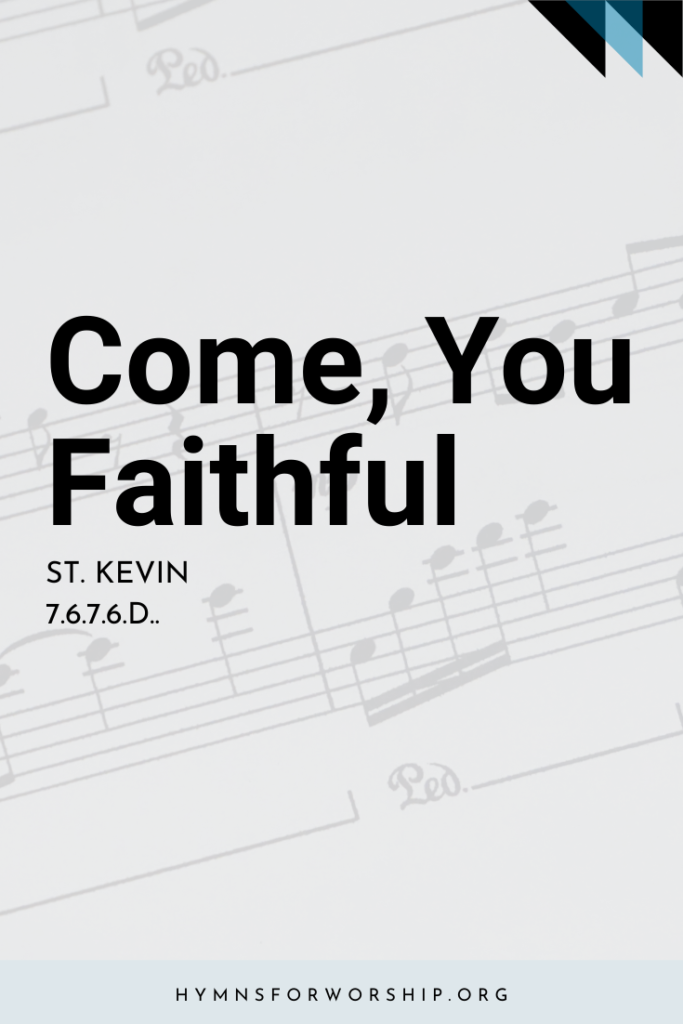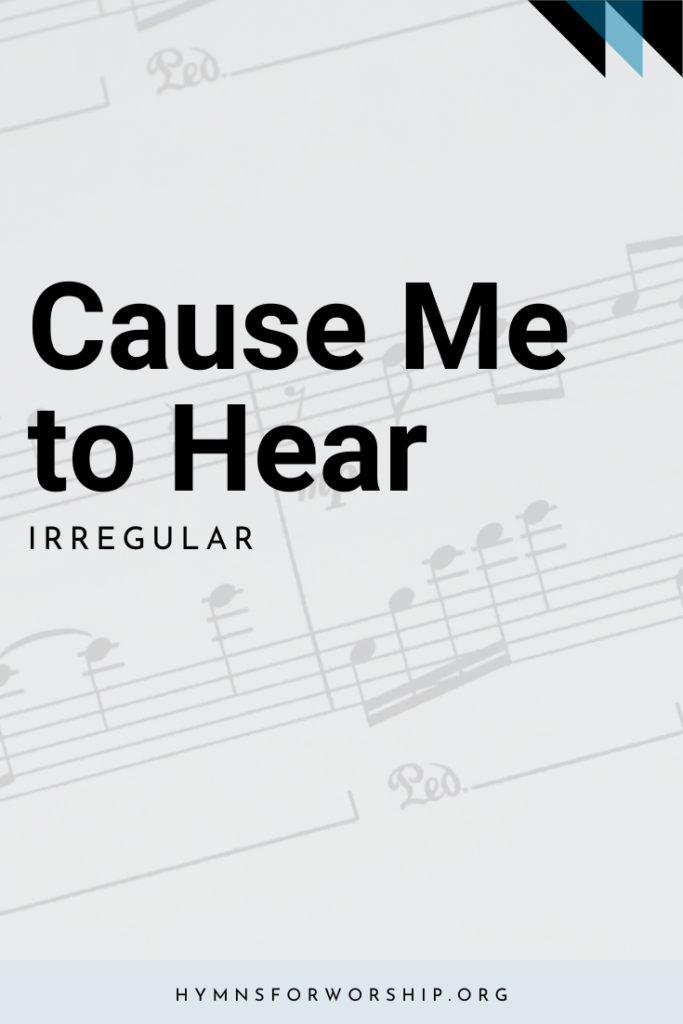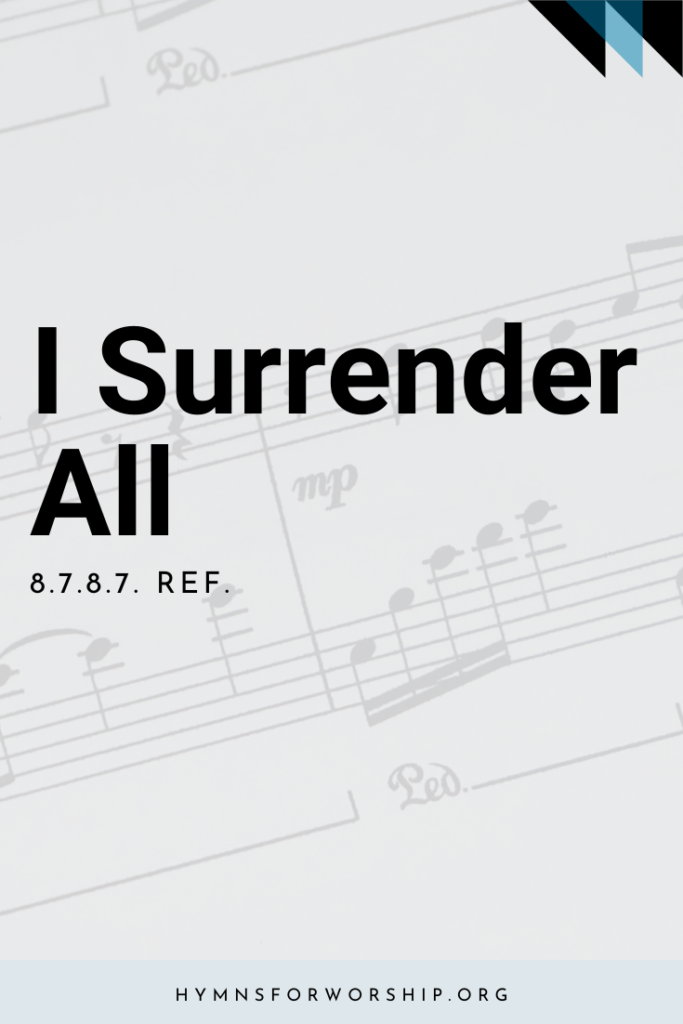
Growing up as a kid in an Adventist home, I usually have memories of hymns being sung in family worships. This hymn is not usually sung at home tho, but I have faint recollections of it being usually sung in evangelistic meetings, especially after the preacher has made an appeal for baptism.
It is not a coincidence that this hymn will be used for that purpose because it was through this means that Softly and Tenderly became a popular hymn among many denominations.
During the great revival years in the US and Great Britain led by the gospel evangelist duo — Dwight Moody and Ira Sankey — this hymn was a popular choice in generating a response after an appeal. The words in and of itself invites us to come and accept God’s mercy. It presents Jesus as waiting, caring and forgiving and it is a compelling message that softens every heart to receive His gift of pardon and grace.
Will Thompson: An Ultra Rich Business-Musician
Will Lamartine Thompson is the writer and composer of this hymn. But before this hymn became famous, and before Thompson became the successful music publisher that he was, we go back to his beginnings and see him as a son of a successful merchant.
He showed interest in music during his early years. This was evidenced by the songs he wrote even before finishing high school. Although he pursued a degree in business at Alliance College located in Ohio, he also followed his musical passions and got a degree in music at the New England Conservatory of Music in Boston, and later on studied music even deeper in Leipzig, Germany.
With the combination of business and music under his belt, Thompson set out to make a mark in the world. He would sell his songs to publishers asking for a total payment of $100 for 4 songs. To this the publisher responded with a counteroffer of $25 to which Thompson declined.
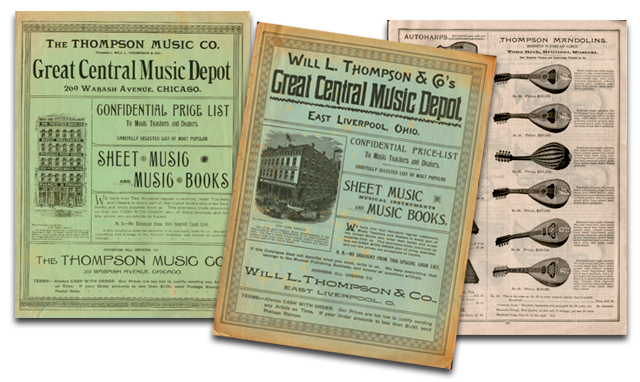
He didn’t consider this deal to be fair so he sought out to go into the business for himself. He started out by establishing a music store selling sheet music and music books. He would also market his own music by sending parts of his music to minstrel shows. He became successful through this means, and eventually became a millionaire. One of his songs, written under 10 minutes, sold about 246,000 copies.
Will Write Christian Music Only
Thompson is already a Christian at this point but it was in attending Dwight Moody’s evangelistic meeting that he decided to devote himself to writing and promoting Christian music. He established the Will L. Thompson Co., a profitable music publishing firm with offices both in East Liverpool and in Chicago, Illinois. Among the well-known hymns that Thompson wrote includes, “Lead Me Gently Home, Father,” “There’s a Great Day Coming,” and “Jesus Is All the World To Me.”
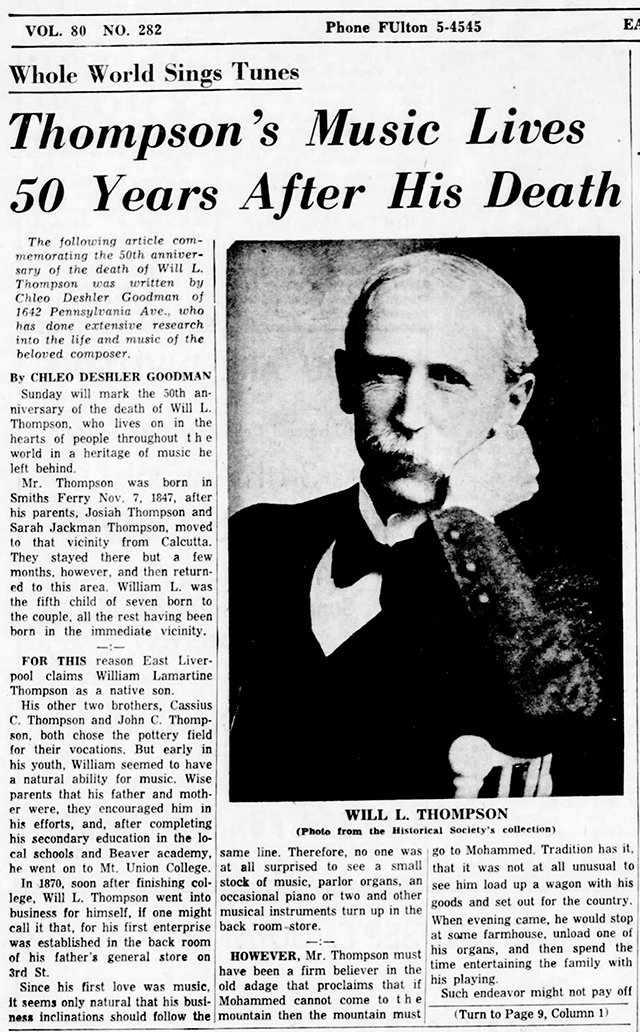
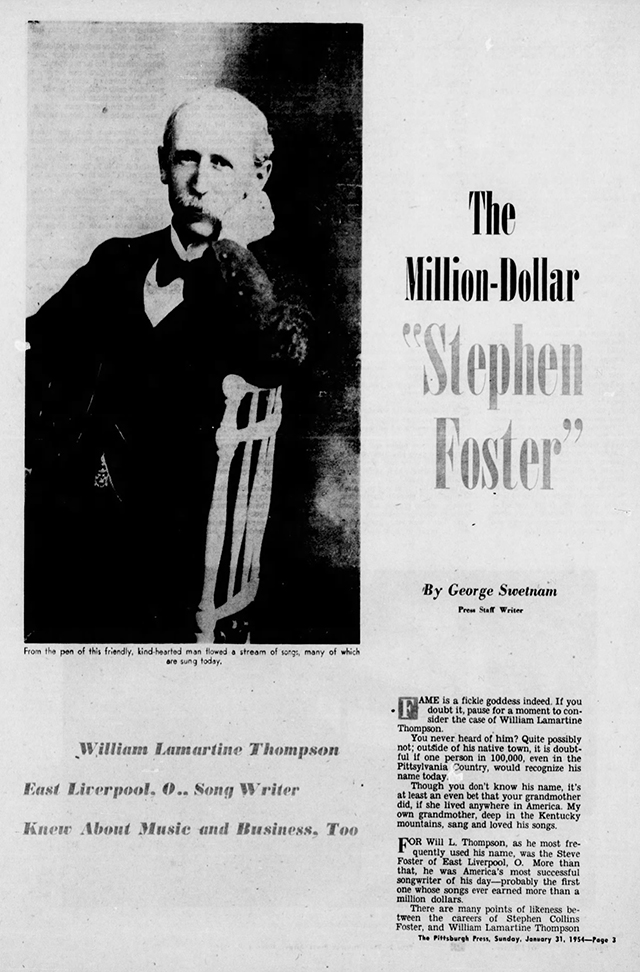
He became a dear friend to both evangelist Dwight Moody and musician Ira Sankey. During this time he also wrote “Softly and Tenderly,” sometimes given the title “For You and For Me.” It became a favorite of Moody and was soon widely used in his evangelistic campaigns both in the United States and Great Britain.
A story was told that when Moody was lying in his deathbed, Thompson visited. Visitors were forbidden around that time, but to Thompson, the dying evangelist made an exception. Though very ill, Moody greeted the songwriter and feebly took him by the hand saying, “Will, I would rather have written ‘Softly and Tenderly’ than anything I have been able to do in my whole life.” Such serious words for a man who has led thousands of people to Christ.
Come Home
What does the song remind you of? What stands out to you the most?
Rev. Carlton R. Young, described his impression this way: “This is a typical lullaby in the gospel hymn tradition that characterizes Jesus as a mother, gently rocking and comforting a child. This attribute contributes to the continuing popularity of this genre of religious song that presents Jesus as waiting, caring, and forgiving in intimate—and for many, compelling—metaphors.”
Musically speaking, it does have a lilt to it being written in 6/8. But the softness, tenderness, and caring characteristics portrayed in the song is probably why Reverend Young is reminded of motherly characteristics of Jesus in the hymn.
The first stanza reminds me of two scenarios:

I see the Jesus mentioned in Revelation 3:20 which says, “Behold, I stand at the door, and knock; if any man hear my voice, and open the door, I will come in to him, and will sup with him and he with me.” He knows and waits for anyone who would be willing to open the door. He doesn’t force His way in.

Here’s a line that perfectly describes the father in the parable of the prodigal son. He waited patiently for his son to come to his senses and inspite of the sins of his son, he still welcomed him with open arms when he finally made up his mind to come home.
The 2nd stanza revolves around the idea of a pleading Savior. This perfectly describes the ongoing intercession that Jesus is doing in the Most Holy Place. In the 3rd stanza, we find Him promising mercy and pardon.
But the genius of this gospel song is found in the refrain, which is not an exception to many other gospel songs. Thompson repeats the invitation to “come home” four times in the melody.
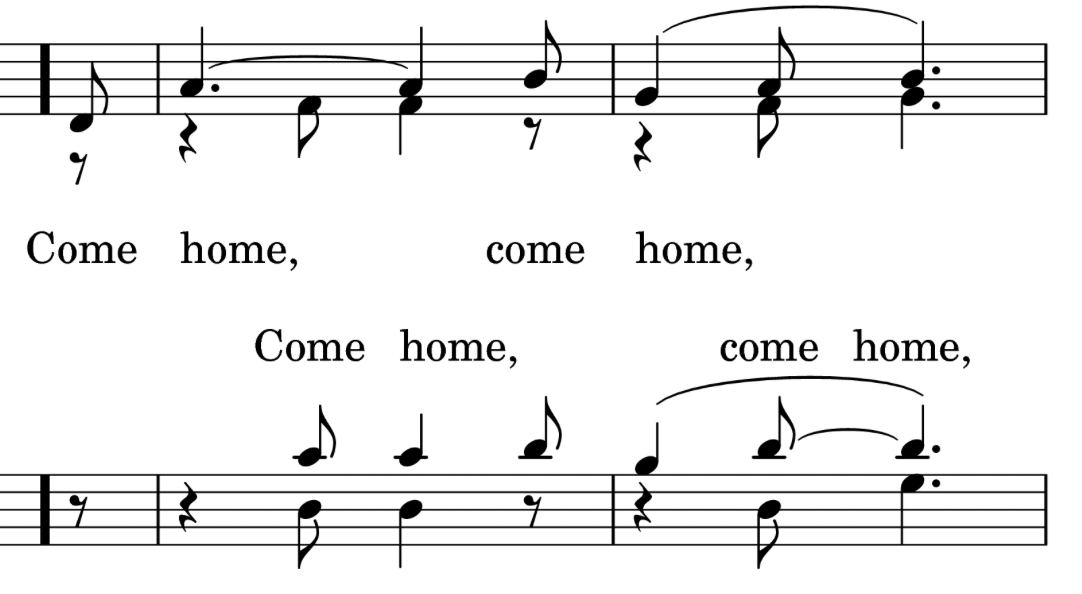
For writers, repetition is a common literary technique which is intentional depending on what message the writer wants to bring across. Not only it helps in the rhythmic structure of the poetry, but it can also emphasize urgency and importance. In this case the bottom line is to come home to Jesus. As if the four repetitions are not enough, Thompson adds it two more times in the accompanying lower voices.
Learn the hymn
Printables, piano accompaniment, hymn text and other tidbits are all available in this site.

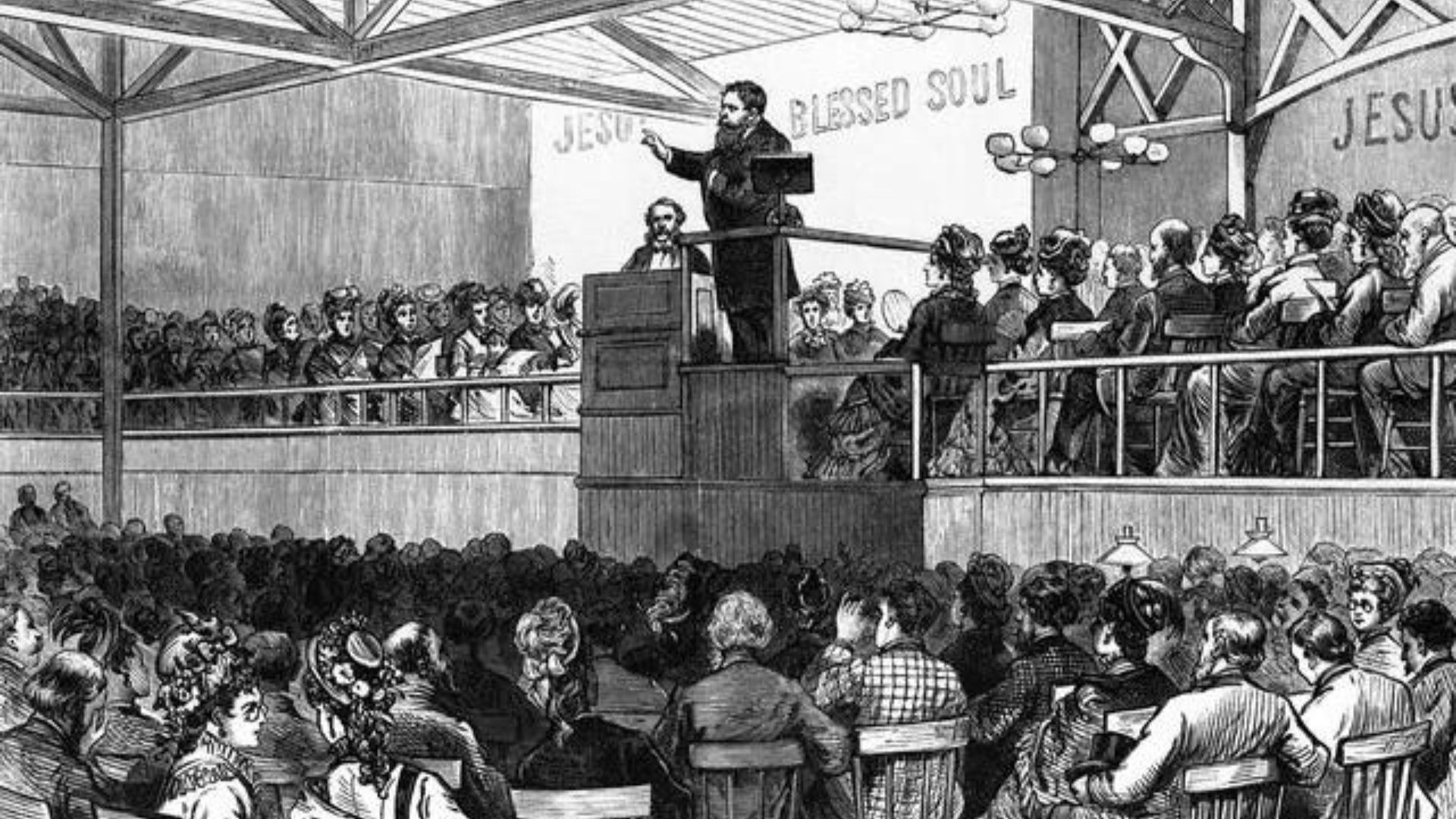
Bringing this closer to home, how do we respond to this Saviour who has been watching and waiting, pleading and promising?
…those who are deceived by Satan look upon God as hard and exacting. They regard Him as watching to denounce and condemn, as unwilling to receive the sinner so long as there is a legal excuse for not helping him…But he whose eyes have been opened by the love of Christ will behold God as full of compassion. He does not appear as a tyrannical, relentless being, but as a father longing to embrace his repenting son…Do not listen to the enemy’s suggestion to stay away from Christ until you have made yourself better; until you are good enough to come to God. If you wait until then, you will never come….
Call to Stand Apart, p. 13

